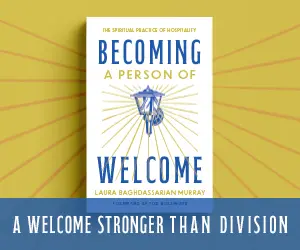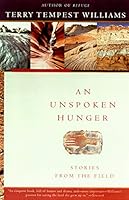Finding Health in the
Enduring Love of God
John Swinton Interview
A conversation with theologian John Swinton, about his new book,
Finding Jesus in the Storm: The Spiritual Lives of
Christians with Mental Health Challenges
(Paperback: Eerdmans, 2020).
– Page 2 –
ERB: I was fascinated by the phenomenological approach you took to your reflections, which you describe in terms of four horizons. Can you describe each of the four horizons and how they work together to create “thick conversation” on mental health challenges?
JS: One of the problems with mental health challenges is that people tend to think of them in very thin ways. By that I mean that if a person gets a diagnosis of say schizophrenia, that is pretty much all anyone seems to see after that. That is the essence of stigma. The fact that people have a name, a history, that they love, cry, have hopes and dreams for now and the future is reduced to a thin description of what people think other people should be like. A phenomenological approach helps us to get past thin descriptions and move towards a thick description that really sees people as whole people in all of their complexity. The idea of horizons are important. Phenomenology tells us to put to one side our natural assumptions about the thing we are looking at. So if we are for example looking at the phenomenon of schizophrenia, a phenomenological approach would ask us to put to one side the assumptions that come with the diagnosis, and really look at the thing as it is without prejudices or preconceptions. It is important to do this if we are to understand faith and mental health. However, when we think about it, it is not possible to completely bracket off the things that we know. Indeed, we need to know certain things in order to understand the world. So, we need to introduce a hermeneutical dimension, that is, we need to learn how to interpret the world. That is where the horizons come in. In order to understand the world we need to bring the things that we know into conversation with the things that we are trying to understand. The philosopher Hans Georg Gadamer describes this as the merging of horizons, bring together different perspectives to make sense of the whole. In the book I explore 4 horizons:
- The horizon of the author. This is what I bring to the table, my knowledge and experience of mental health both in terms of professional knowledge, theological knowledge, and personal experience.
- The horizon of Christians living with mental health challenges. This horizon emerged from a series of qualitative research interviews I did over a four-year period with Christians living with schizophrenia, bipolar disorder and depression. The intention here was not to explain these experiences, but to try to understand them specifically in relation to how they impacted upon people’s faith lives, and to begin to think through what kinds of communities might be required in order to help people deal constructively with these spiritual experiences.
- The horizon of the professional field of mental health care. Professional mental health care is absolutely vital. Here we listen to the perspectives of psychiatry, psychology and nursing, but also to other associated disciplines such as the anthropology of mental health. People do not experience mental health challenges in exactly the same way across cultures. There is much to be learned from exploring other cultural perspectives.
- The Horizon of Scripture, Christian tradition, and reflection on the life of the church. This horizon brings the conversation directly into conversation with theology, scripture and tradition with a view to gaining a deeper understanding of the phenomenon.
The movement of the book involves an ongoing dialogue between these four horizons with a view to gaining deeper understanding and, hopefully, helping to create more accurate and compassionate understandings of very difficult human experiences.
<<<<< PREV. PAGE |
NEXT PAGE >>>>>
 Reading for the Common Good From ERB Editor Christopher Smith "This book will inspire, motivate and challenge anyone who cares a whit about the written word, the world of ideas, the shape of our communities and the life of the church." -Karen Swallow Prior Enter your email below to sign up for our weekly newsletter & download your FREE copy of this ebook! |
 Understanding Christian Nationalism [A Reading Guide]
Understanding Christian Nationalism [A Reading Guide] |
 Most Anticipated Books of the Fall for Christian Readers! Most Anticipated Books of the Fall for Christian Readers!
|
 Hilarious One-Star Customer Reviews of Bibles Hilarious One-Star Customer Reviews of Bibles |




![Christine Marie Eberle - Finding God Along the Way [Review] Finding God](https://englewoodreview.org/wp-content/uploads/2025/04/Finding-God.jpeg)
![Susan E. Hylen - Finding Phoebe [Feature Review] Finding-Phoebe](https://englewoodreview.org/wp-content/uploads/2023/04/Finding-Phoebe.jpeg)


















